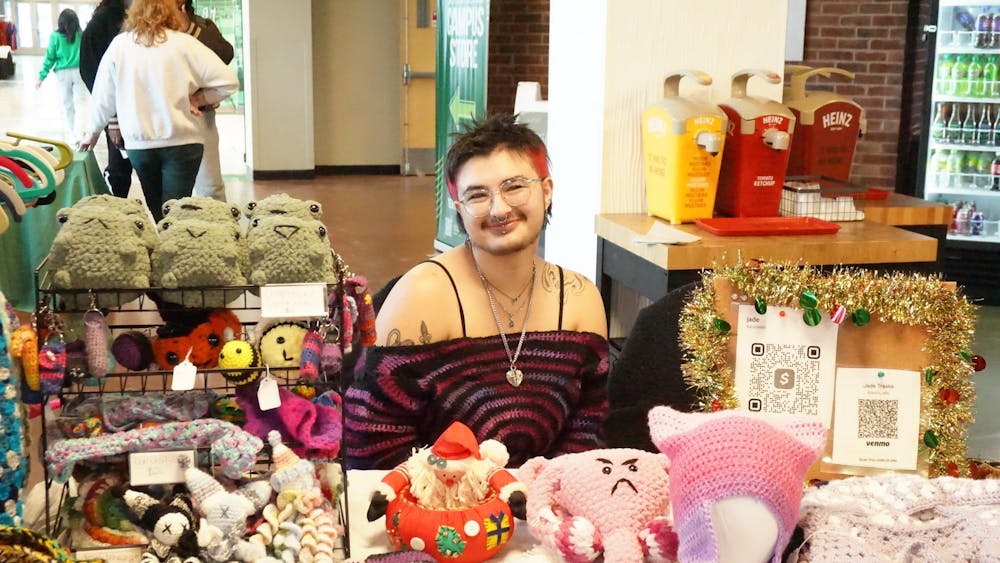Victoria’s Secret closed over 50 more stores following negative remarks about transgender and plus-size people made by the company’s CEO Ed Razek late last year. It’s time to ditch the company for good.
On Nov. 9, 2018, Razek did an interview with Vogue discussing the upcoming and highly anticipated annual Victoria’s Secret Fashion Show. During the interview, he reportedly dismissed any chance of casting a plus-size or transgender model in the show in the future.
When asked if he would make the show more inclusive with transgender models, he responded: “No. No, I don’t think we should...because the show is a fantasy.”
He also claims this is the reason for not casting plus-size women in the event, as well as lack of an audience.
He answered bluntly: “We attempted to do a television special for plus sizes. No one had any interest in it. Still, don’t.”
Since this interview, 30 stores closed in 2018 alone, compared to its usual annual average of 15 stores. As of this month, the company has now announced it is closing 53 more, according to CNN.
In the past year, Victoria’s Secret stock has fallen 40 percent, and the company has lost upwards of a whopping 4 million customers. Even the Victoria’s Secret Fashion Show, which used to rack up an impressive 6 million viewers in previous years, dropped to 3 million in 2018.
Though the company has yet to change its marketing style or disclose its plan for the future, it’s possible that we’re beginning to see the end for Victoria’s Secret, which isn’t necessarily a bad thing.
For its entire existence, Victoria’s Secret has targeted only one type of woman and excluded the rest. Whether it be their petite sizes or their one-size-only models, it has always been an unrealistic and unsupportive brand for women. Razek’s comments only confirmed the message the company has been sending consumers for the past 40 years.
We shouldn’t be giving money to a company that profits off of women’s insecurities or excludes any type of woman, such as plus-size or transgender. The company’s supermodels, fashion shows and intentionally smaller sizes all make girls believe they need to look a certain way if they wish to wear Victoria’s Secret products. It subtly implants a message that a girl is “too big” if she can’t fit into their products, and if she can, she is expected to look like the models Victoria’s Secret plasters all over its stores, commercials and advertisements.
Victoria’s Secret, however, isn’t the only brand that uses this degradation marketing method. Abercrombie & Fitch’s CEO Mike Jeffries also said in an interview that they carefully pick employees and sizes to only attract certain kinds of customers.
“A lot of people don't belong in our clothes,” Jeffries told Salon. “That’s why we hire good-looking people in our stores. Good-looking people attract other good-looking people...We don’t market to anyone other than that.” This is almost identical to what Victoria’s Secret’s sales intentions are. It’s time we leave brands like this behind us.
Even girls who aren’t directly affected or offended by either Razek’s comments or Victoria’s Secret’s overall marketing style, and may even benefit from it, should still opt out of giving their money to the company. No matter how popular a business is, it still needs to be held accountable for its wrongdoings.
Unfortunately, the backlash Victoria’s Secret is now facing will be limited if only transgender, plus size and other affected women boycott. It’s times like this that women need to come together and stand up for those being brought down, even if they personally don’t feel the repercussions. It’s time to take down discriminatory businesses like Victoria’s Secret and instead support more women-empowering ones.
Body positive companies to shop at instead include SavageXFenty, Torrid, and Aerie, who have actually had immense sales growth since the downfall of Victoria’s Secret. All of these brands use diverse sets of models, including gender identity, body type, disability, and race. These businesses have all built their platform on inclusion and acceptance and deserve more recognition than Victoria’s Secret.
Even if Victoria’s Secret does change to become more inclusive, it wouldn’t be genuine. It will be out of the struggle to stay afloat and profit off of the customers it used to exclude. Victoria’s Secret changing its marketing style to be more accepting would just be the company exploiting plus-size and transgender women to get its sales back up after years of ignoring and degrading them. It’s time to ditch Victoria’s Secret for good.







